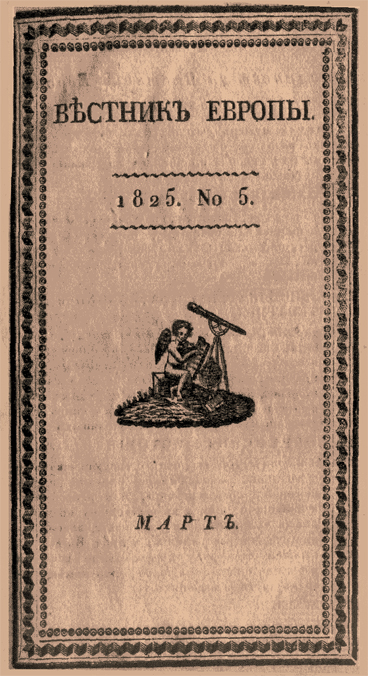Vestnik Evropy Digital Archive
A major influence on the outlook of Russian intellectuals
Vestnik Evropy (Вестник Европы, Herald of Europe) was one of the first literary and political journals published in the time of the Russian Empire. Published in Moscow from 1802-1830, it was founded by Nikolay Karamzin, a well-known author and historian. The aim of Vestnik Evropy was to provide Russian intellectuals—those that considered themselves “European Russians”—with cultural, historical, political, and literary thought from Europe. Vestnik Evropy soon became a major influence in the development of a European outlook in Russia. The journal included works of fiction and poems from Russian authors, and articles on politics and social life in Russia as well as in other countries. In 1814 Vestnik Evropy published the first poems of Aleksandr Pushkin, just one of many well-known contributors, including the talented poets Zhukovsky, Derzhavin, Vyazemsky and Batyushkov.
